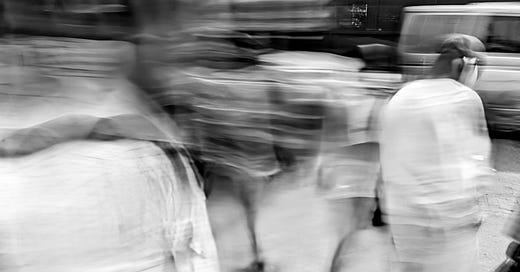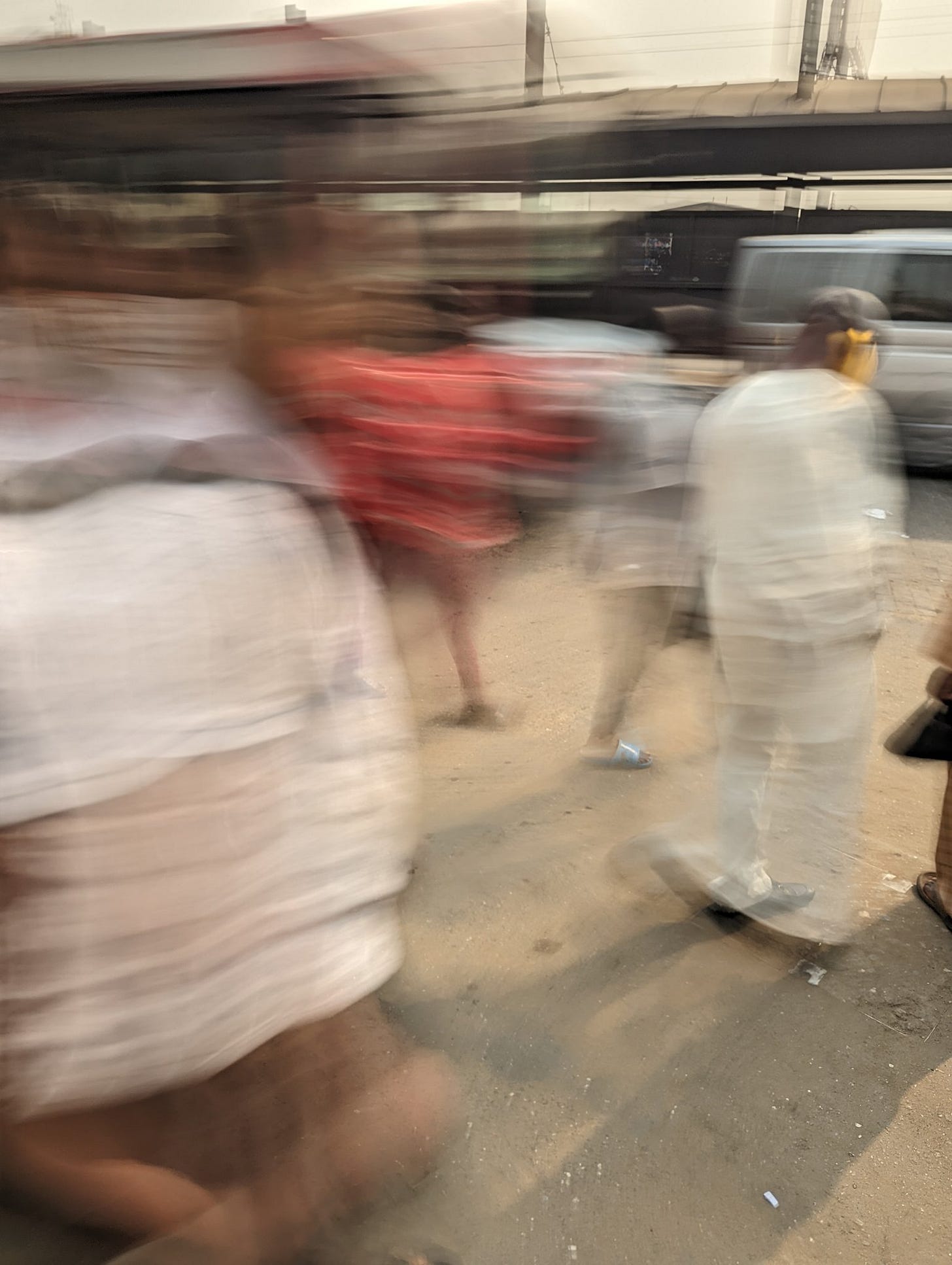When I rejoined Zikoko for the second time in 2020, one of my first tasks was creating a weekly column to serve Zikoko’s growing audience.
At the time, Zikoko already had superb weekly series like NairaLife, Aluta and Chill, What She Said, Abroad Life, and Sex Life. From my POV, I couldn’t see what else I could offer that hadn't already been taken or what I could do that was going to make a difference. The task seemed huge, scary, and, frankly, undoable. There were so many moments where I felt like I was in over my head by coming back. I may or may not have walked the length and breadth of Surulere in search of inspiration or shaved off my head as a prelude to an impending breakdown.
But I digress.
To their credit, Zikoko’s editorial team—under the leadership of Fu’ad Lawal and Ope Adedeji—provided support and numerous column ideas. Still, many ideas fell through either because the logistics were tight or I froze.
I no longer remember who, but one sunny day at work, on a day as idle as a painted ship on a painted sea, someone came up with the idea of documenting everyday Nigerians and telling their stories.
“What would one week look like in the shoes of someone with a completely different reality from you?” “What would writing this even look like in practice?”
For some weird reason, I was drawn to this idea, and unlike previous ideas, I decided I could actually do this. Perhaps it was because I had struggled with getting column ideas or because it was a good day at the office; everyone contributed the stories they wanted to read.
“Why not write about tailors?” “You should interview this Keke woman I see on my way home every day.” “You should definitely find out how suya sellers spend their day.”
These conversations, along with very helpful introductions, led to the first-ever “A Week In The Life Story” about a Keke Napep driver finding her way in a male-dominated field.
After that, someone suggested I speak to the NCDC’s customer-care agent during the height of the COVID-19 pandemic, which was both eye-opening and heart-wrenching. I once spent an enjoyable day talking to an Alaga [wedding MC] who hated parties. I got through a tedious day by listening to an interstate driver tell me about having girlfriends in every state he drove through.
But best of all, chasing these stories opened my mind to the many untold stories that lay dormant around me in Lagos. Suddenly, there was a story everywhere I turned—hilarious, heartbreaking, inspiring, and complicated stories. So many human-interest stories, as far as my eyes could see.
I found myself drawn to unnoticed and odd stories: stories of people who fly below society’s radar of “important.”
So, I was perfectly fine spending six hours in the morgue with a mortician who cared for dead people. I cherished watching a horologist work with a single focus on a challenging task, as well as conversing with a zookeeper who didn’t have human friends. For nearly six months, I tried—and failed—to reach a Nigerian pornstar who was comfortable in her skin while living in a judgemental society.
Many of the people I spoke to did not think their lives were interesting enough to talk to me, but they enamored me from the minute they opened their mouths. They were honest and striving to be real people in a way that most people were too cynical to be.
They also had important things to say, and I listened and enjoyed their company.
Years after leaving Zikoko, people still ask me the biggest lessons I learned from writing the “A Week in The Life” column. For me, it's simple things like learning that everyone has a story that explains—without justifying—their origin stories and actions. Like the NURTW official [popularly known as agbero] who collects levies from yellow buses, and the unpaid housewife who feels unappreciated for all her thankless labor.
It's also big things like learning that anything or anyone can be interesting as long as you're interested. Half the time, people just want to be seen, listened to, and told that their very specific—even if quirky and occasionally dramatic—problems matter.
Most importantly, I've learned that we all owe each other the gift of attention—urgently, generously, and unflinchingly.
PS: In March, and I made a documentary about grave diggers, men who make a living by burying the dead. You can watch it here.




![A photo of a yellow bus [known as danfo] on the express A photo of a yellow bus [known as danfo] on the express](https://substackcdn.com/image/fetch/w_1456,c_limit,f_auto,q_auto:good,fl_progressive:steep/https%3A%2F%2Fsubstack-post-media.s3.amazonaws.com%2Fpublic%2Fimages%2Fcdfef642-83d7-4d02-a69d-eabbd618b3cf_1542x2048.jpeg)
